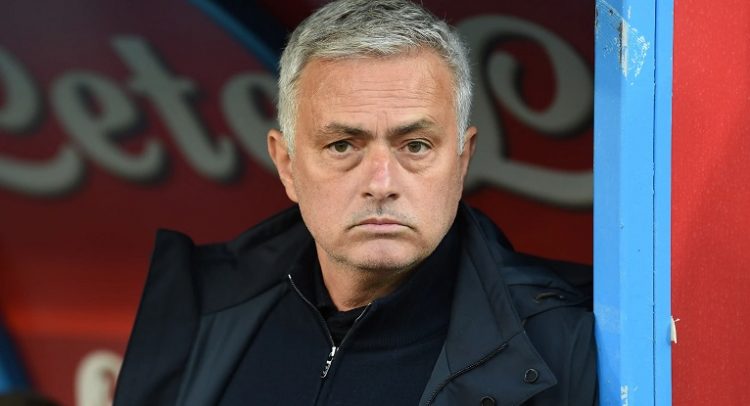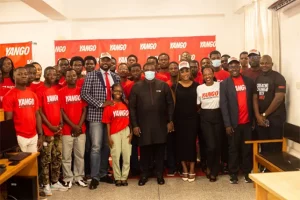
By Abaogye Mintah
A few days ago, Chelsea FC stunned the footballing world by pulling off a monumental victory in the Club World Cup, beating the team widely regarded as the best in the world.
It wasn’t just a football match—it was a story of underdogs rising, of relentless preparation, and of strategic genius playing out on the world’s biggest stage.
For entrepreneurs and business enthusiasts, there’s gold to be mined in Chelsea’s win—five core lessons that can energize and shape your journey through the ever-competitive world of business.
Let’s dive into the locker room and boardroom and explore what Chelsea’s triumph teaches us.
Resilience Beats Reputation
Chelsea didn’t go into the match as favourites. Their opponents were lauded, feared, and expected to dominate. But reputations don’t win matches—resilience does.
In business, giants often dominate the conversation—think of how Blockbuster once ruled video rentals or how Kodak led the photography world. Yet both fell, not because their competitors had more resources, but because they lacked the resilience and adaptability to evolve.
Chelsea didn’t crumble under pressure. They played with calm, focus, and grit. Entrepreneurs must do the same when facing competitors with bigger budgets, more reach, or longer histories.
 “It’s not the strongest of the species that survive, nor the most intelligent, but the one most responsive to change.” – Charles Darwin
“It’s not the strongest of the species that survive, nor the most intelligent, but the one most responsive to change.” – Charles Darwin
Case in Point:
Take Netflix—a once small DVD-rental startup that dared to challenge Blockbuster. It survived early skepticism, pivoted into streaming, and is now a global media giant. That’s the power of resilience in action.
Embrace Being the Underdog
Let’s face it—there’s something powerful about being underestimated. Chelsea wasn’t expected to win, and that gave them a psychological edge. There were no heavy expectations, just hunger.
For entrepreneurs, being an underdog is often a blessing in disguise. You can operate under the radar, make bold moves, take risks, and redefine the game—without the pressure that established players face.
 “When you’re an underdog, you can take chances others can’t afford to take.” – Malcolm Gladwell
“When you’re an underdog, you can take chances others can’t afford to take.” – Malcolm Gladwell
Business Example:
Spanx, founded by Sara Blakely with just $5,000, entered a male-dominated hosiery industry dominated by Goliaths. Nobody gave her a chance. Today, Spanx is a billion-dollar brand because she embraced her underdog status and disrupted the status quo.
So, wear your underdog tag with pride—it might just be your unfair advantage.
Preparation Makes the Impossible, Possible
Chelsea’s win didn’t happen by accident. It was a result of relentless preparation—hours of tactical planning, training, and studying their opponents.
In business, preparation is your invisible armour. It’s what helps startups compete with multinationals, and what allows one-person businesses to pitch and win big contracts.
 “By failing to prepare, you are preparing to fail.” – Benjamin Franklin
“By failing to prepare, you are preparing to fail.” – Benjamin Franklin
Example from the Business World:
Airbnb didn’t just become a travel giant overnight. Founders Brian Chesky and Joe Gebbia studied the market deeply, spent countless nights couch-surfing, and meticulously prepared their pitches. Their iconic pitch deck (just 10 slides!) is still studied by startups today.
Success favors the prepared mind. Entrepreneurs who do the groundwork—researching the market, understanding their competition, and fine-tuning their product—can win, even when the odds are stacked against them.
Strategic Flexibility is a Superpower
Chelsea didn’t play their regular possession-based style. Their tactics evolved with the scale of the opponent. They adapted, reshuffled, and restructured. That flexibility allowed them to neutralize PSG’s relentless press and exploit opportunities as they arose.
In the business world, sticking to one rigid strategy can be lethal. The market changes. Consumers change. Technology evolves. Strategic flexibility allows you to pivot when needed.
 “In preparing for battle, I have always found that plans are useless, but planning is indispensable.” – Dwight D. Eisenhower
“In preparing for battle, I have always found that plans are useless, but planning is indispensable.” – Dwight D. Eisenhower
Example:
Slack started out as an internal communication tool for a failed video game company. When the founders noticed that the chat app was more valuable than their original product, they pivoted—and today, Slack is a multi-billion-dollar company changing how teams work.
Stay flexible. Keep listening to the market. Adjust. That’s how you stay ahead.
Believe in Your People—and Let Them Shine
In Chelsea’s win, key players stepped up. Palmer, Gusto, James, Sanchez, Pedro etc. The manager trusted his squad, even when others doubted. That belief created magic on the field.
As a founder or business leader, your team is your most valuable asset. Believe in them. Invest in them. Give them room to rise.
 “Clients do not come first. Employees come first. If you take care of your employees, they will take care of the clients.” – Richard Branson
“Clients do not come first. Employees come first. If you take care of your employees, they will take care of the clients.” – Richard Branson
Real World Tie-In:
Google is legendary for its team culture. It doesn’t just hire smart people—it creates an environment where they can experiment, innovate, and grow. From Gmail to Google Maps, many of its top products came from empowered employees.
The takeaway? Your team’s morale, confidence, and autonomy could be the difference between a regular business and a championship-winning one.
Final Whistle: Turning Football Lessons into Business Wins
Chelsea’s Club World Cup win will be remembered as a footballing shocker—a moment when grit outshone glamour. But for entrepreneurs, it should be remembered as a blueprint.
- Resilience to keep going when the world expects you to fold.
- Underdog mindset to take risks and punch above your weight.
- Preparation to seize your moment when it comes.
- Strategic flexibility to pivot, evolve, and stay ahead.
- Team belief to unlock excellence in those around you.
So the next time you watch a big football match, don’t just cheer—observe. Because in every high-stakes game, there’s a business masterclass waiting to be learned.
And remember: whether you’re in a boardroom or a boot room, victory favours the brave, the prepared, and the bold.
Abaogye is an Entrepreneur and part-time writer
The post What Chelsea’s win can teach entrepreneurs about winning appeared first on The Business & Financial Times.
Read Full Story













Facebook
Twitter
Pinterest
Instagram
Google+
YouTube
LinkedIn
RSS